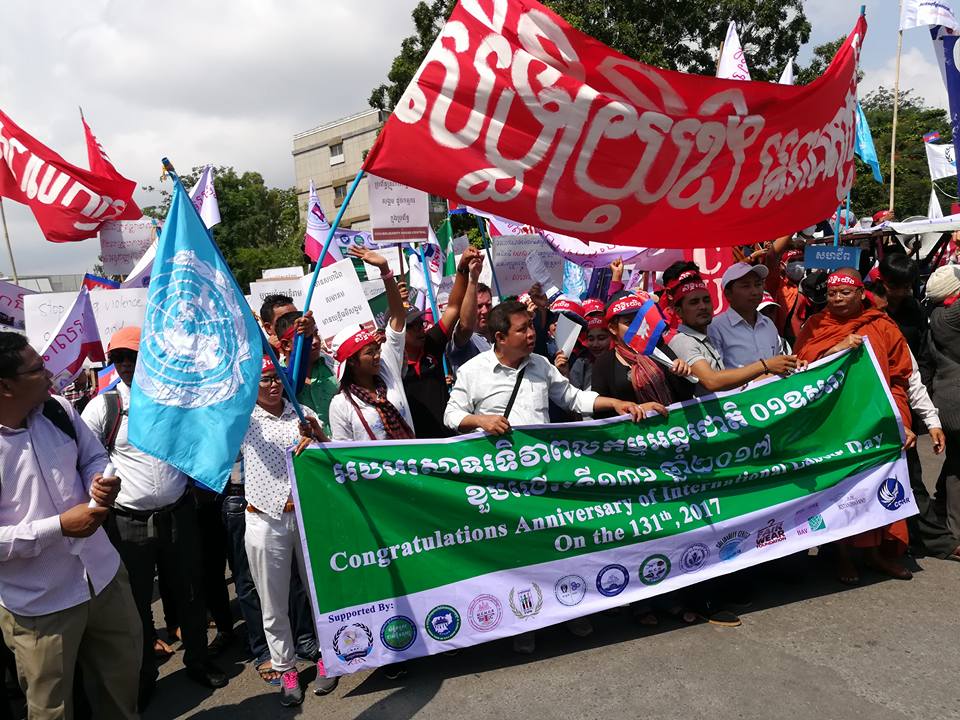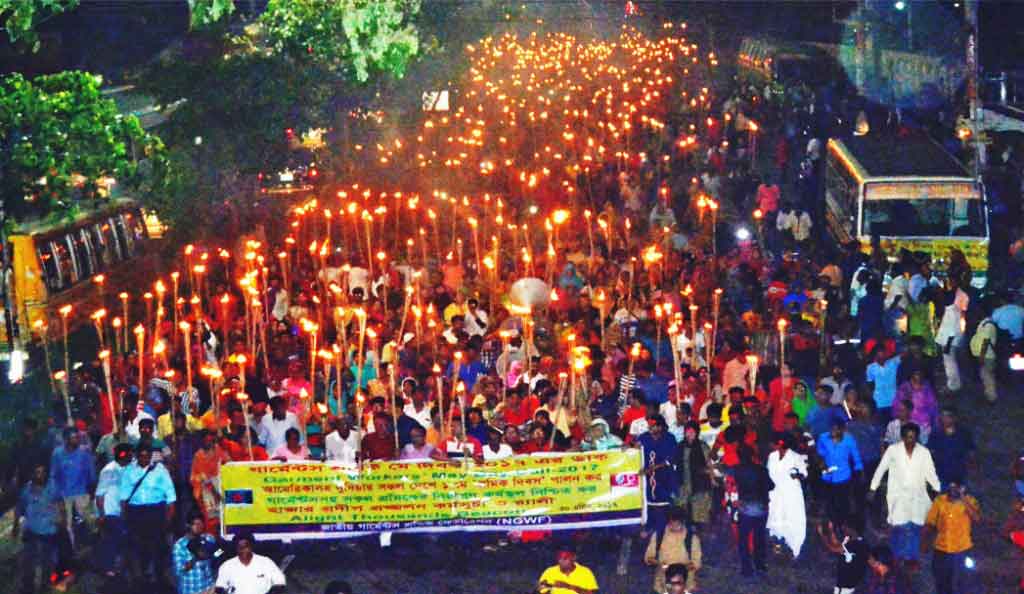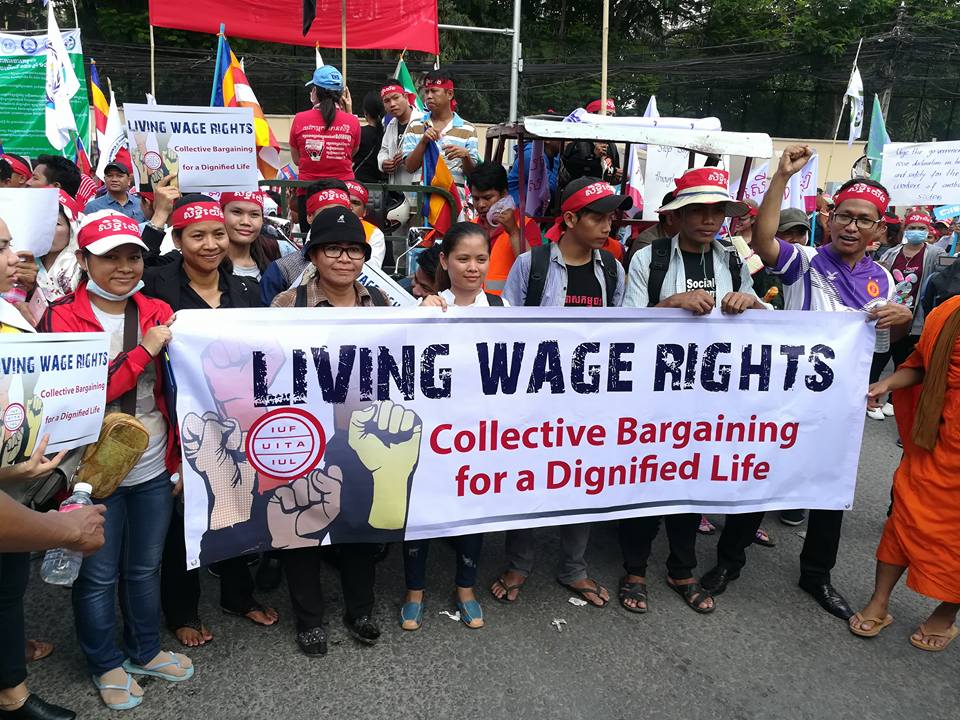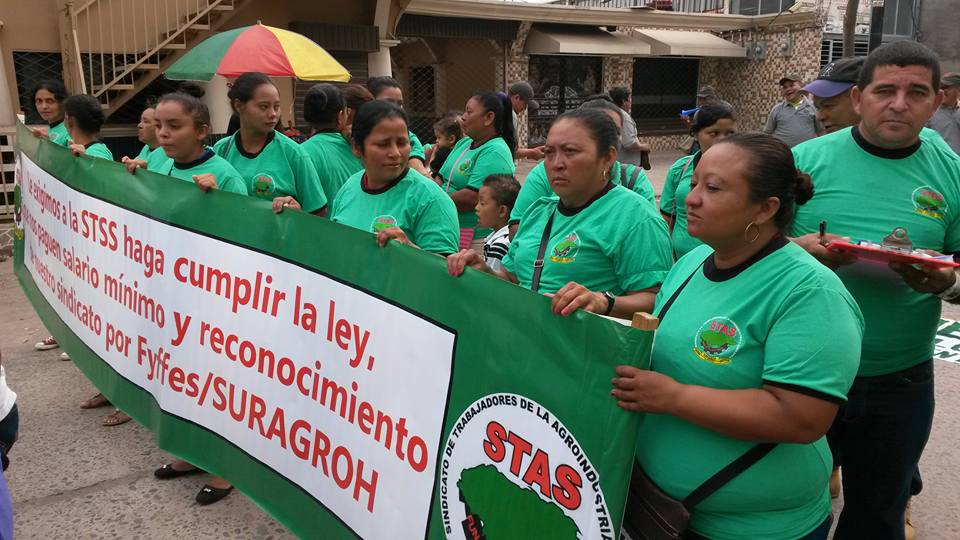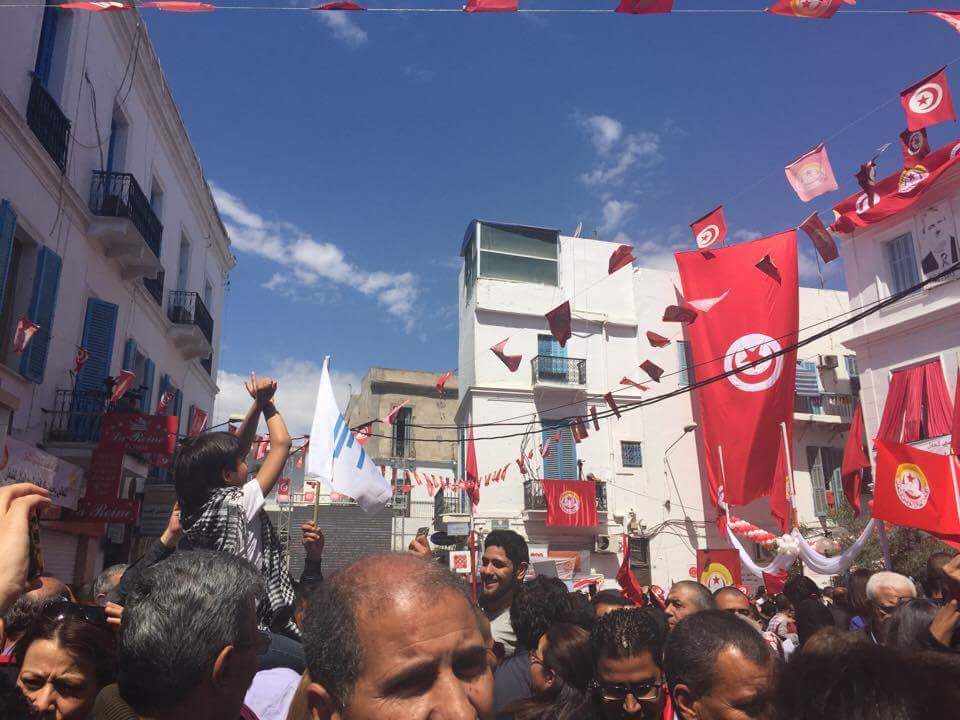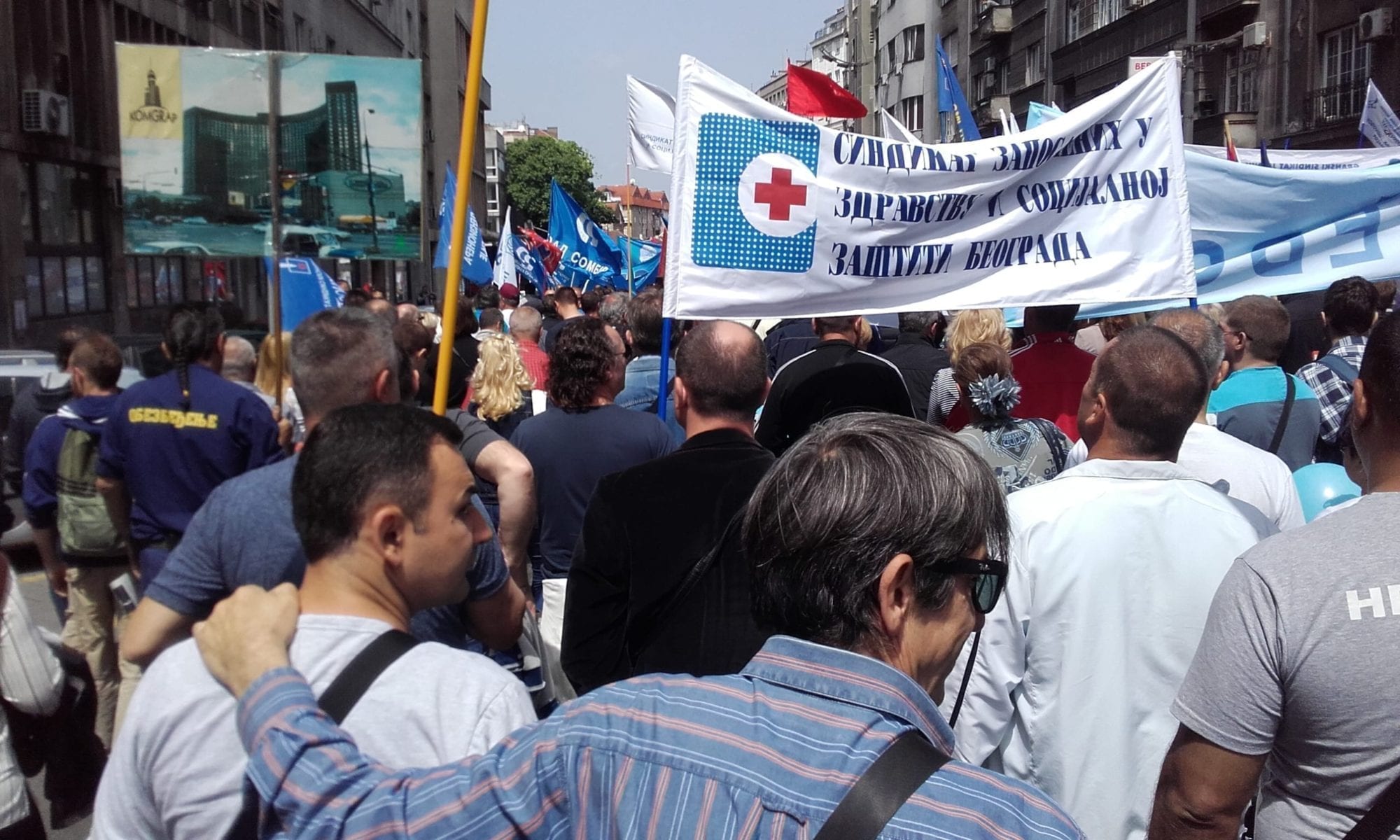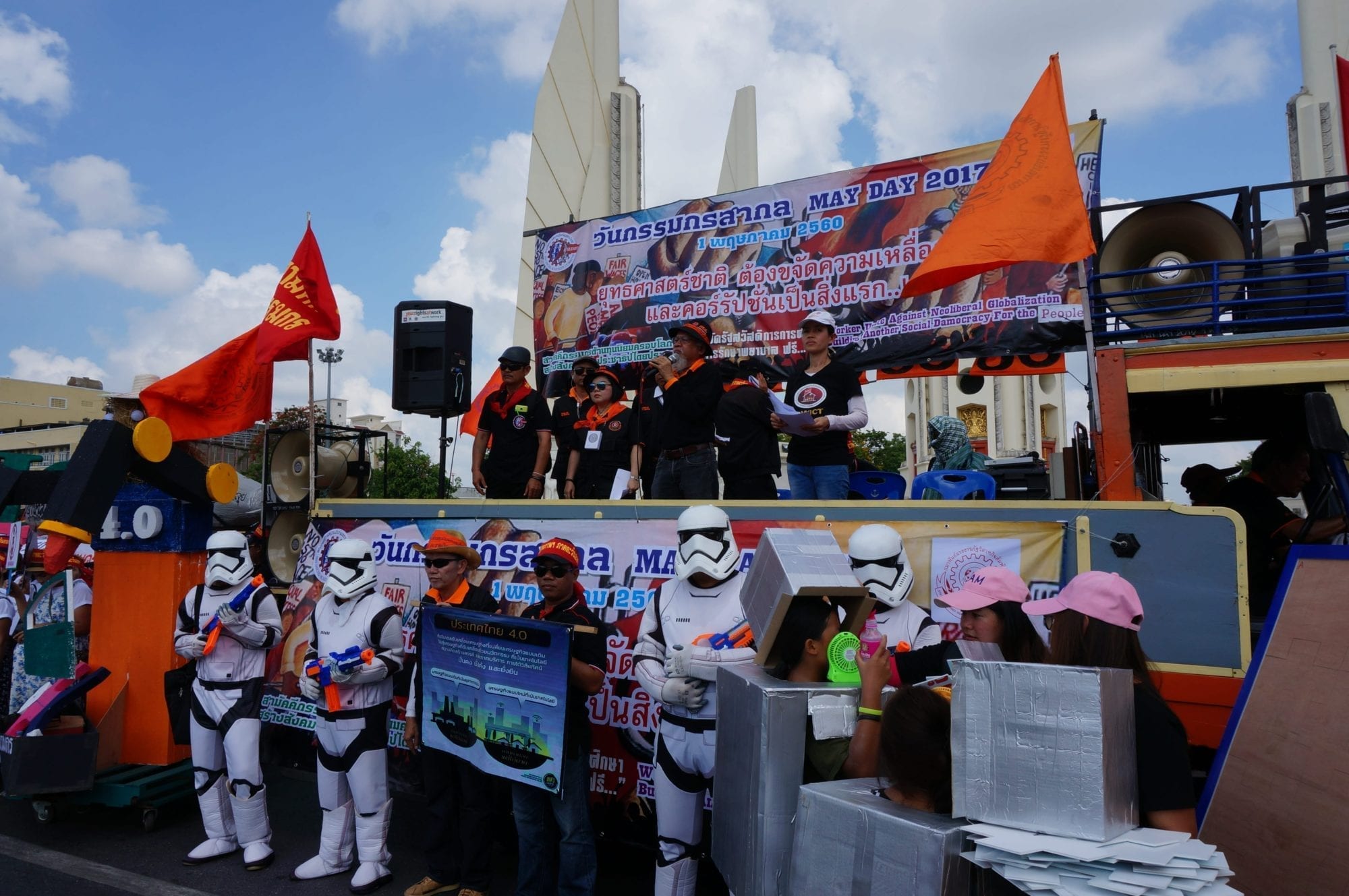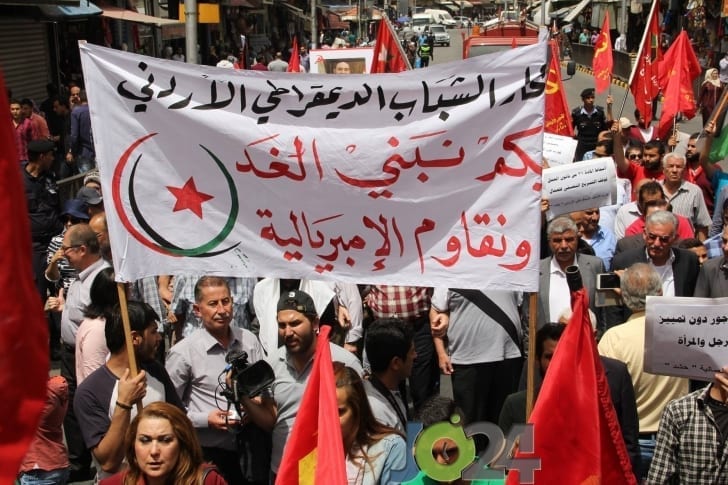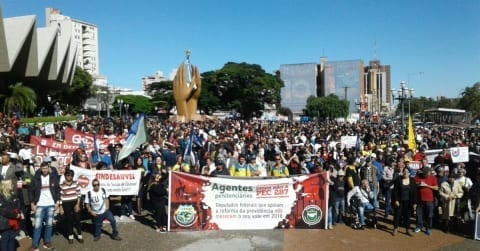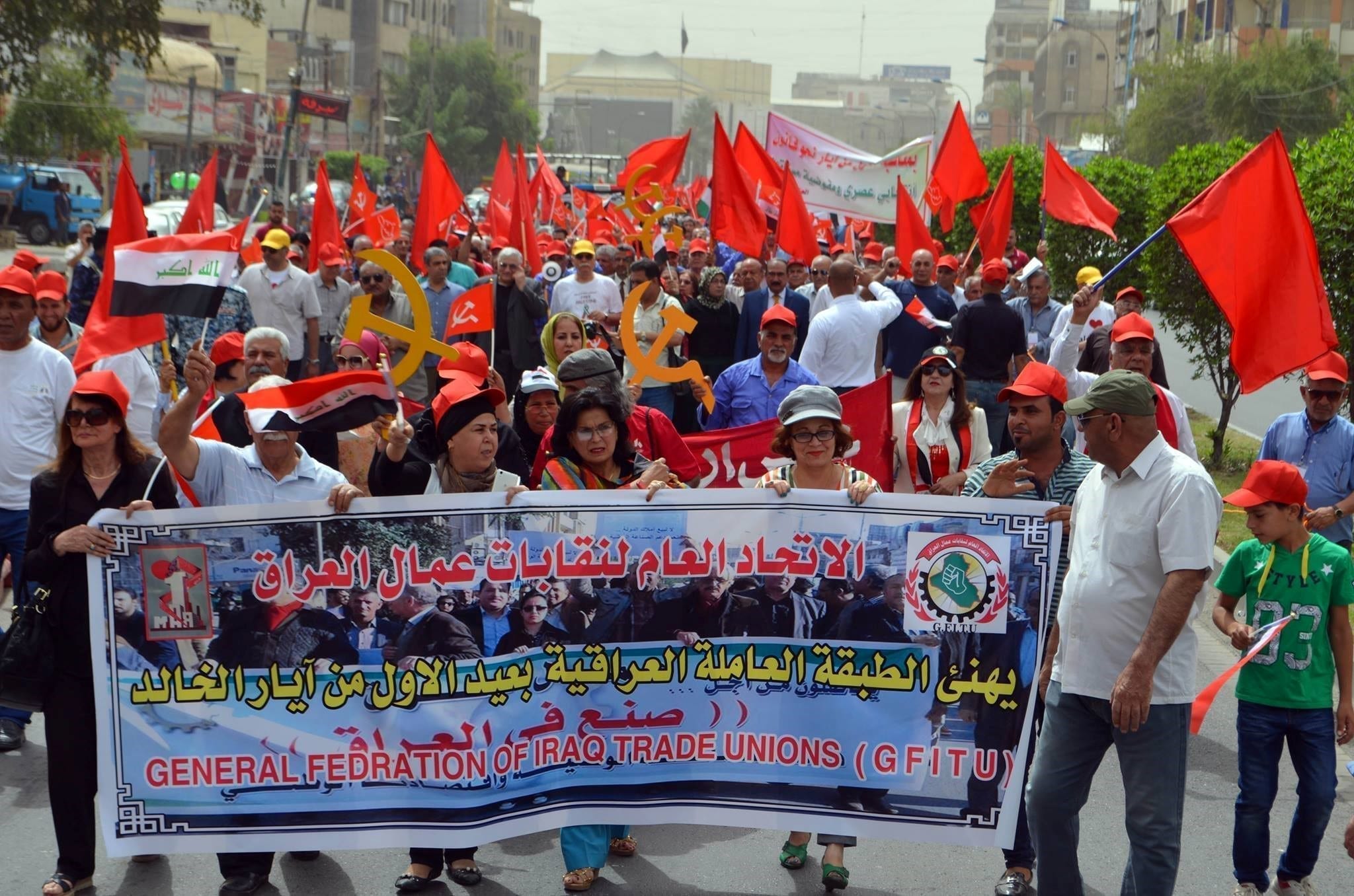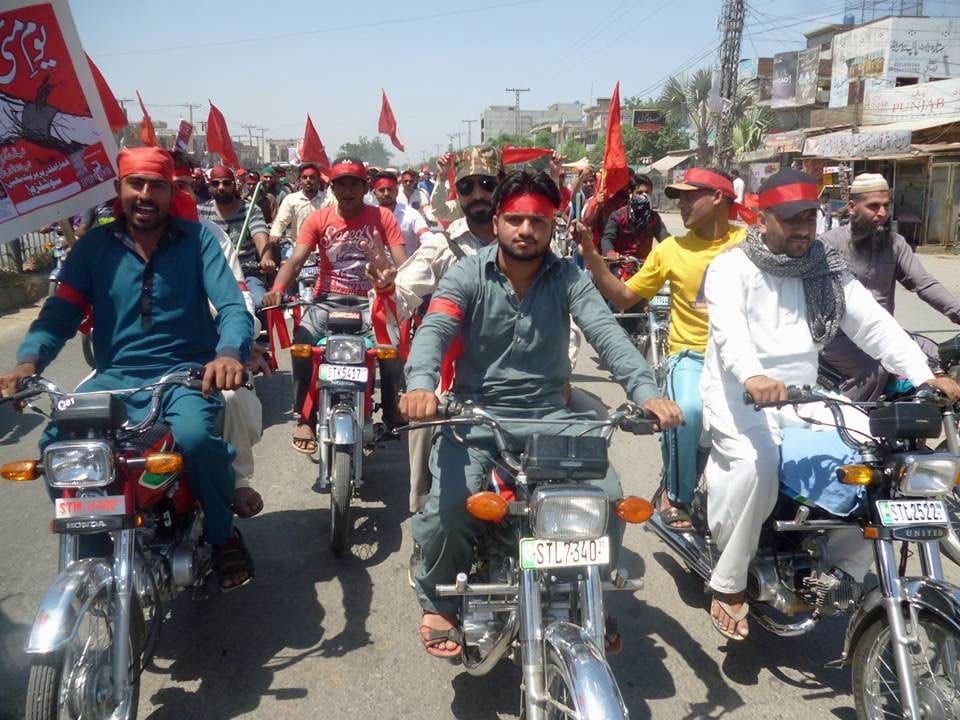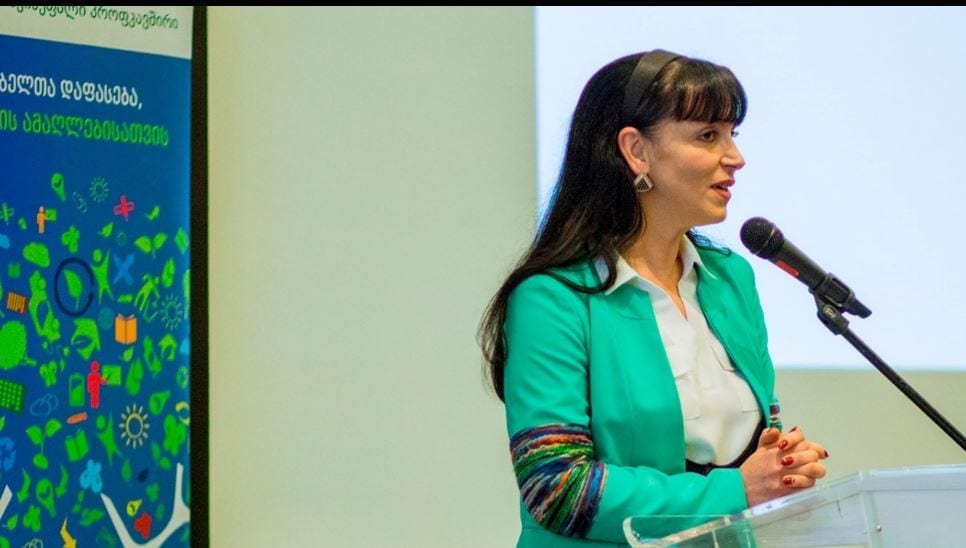
Apr 10, 2017

Tamar Barisashvili, Georgian language teacher and ESFTUG member, in the classroom. Credit: Lela Mepharishvili
In a precedent-setting move, the union representing teachers in Georgia signed a pact with the education ministry last month, signaling the new government’s willingness to partner with teachers—although unions in other sectors, including the railways and postal sector remain under attack. Unions in Georgia have struggled for their right to organize for more than a decade now, including under former president Mikheil Saakashvili.
“The decision of the Minister of Education and Science to sign the sectoral agreement shows clearly how democratic processes are developing and the democratic management in the education sector is being established,” said the president of the ESFTUG education union, Maia Kobakhidze, representing teachers.
Committing the ministry to work in partnership with the ESFTUG, the agreement sets a path for cooperation on laws and regulations affecting teachers, collective agreements with the union regarding teachers’ compensation, work conditions and benefits, as well as any new education initiatives.
The agreement reverses more than a decade of an anti-union campaign by the former administration, as a result of which the country’s labor federation, GTUC, lost more than 100,000 members, and the teachers’ union came close to collapse.
In recognition of the significance of the agreement, the signing ceremony in Tblisi on March 16, 2017, by ESFTUG’s Kobakhidze and Education Minister Aleksandre Jejelava was widely covered by media, and gathered together 300 guests. Attendees included representatives of the teachers, ministry officials, members of the diplomatic corps, including the U.S. Embassy, the International Labor Organization (ILO), the global union federation Education International (EI) and several nongovernmental organizations.
Jejelava thanked ESFTUG during his speech for giving his ministry the opportunity to work with the union to create better conditions for teachers and defend their rights, so they may better serve Georgia’s children.
The Solidarity Center has partnered with Georgian trade unions for almost two decades, providing programs that support legislative research and training in defense of worker and union rights, promote activities designed to increase union integration and coordination, help unions represent their members and reach out to unorganized workers, and educate workers about principles of democratic trade unionism.
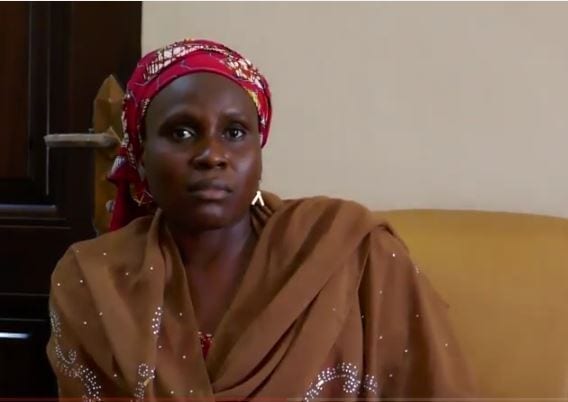
Mar 28, 2017
Even as an uneasy but relative peace takes hold in northeastern Nigeria, the death toll and violence of the past several years is having long-term effects on returning teachers, healthcare workers and civil servants in Borno state, according to a joint survey completed by public-sector unions last month.
The unions, with Solidarity Center support, documented hundreds of deaths by violent attacks—attacks in which many public-sector workers were specifically targeted.
The Nigeria Union of Teachers (NUT), Borno State Wing, estimates that it has lost more than 500 members, some to homemade bombs hurled at concrete classrooms. The Medical and Health Workers Union of Nigeria (MHWUN), Borno state, counted losses in the hundreds. The Borno state branch of the Nigeria Civil Service Union (NCSU) estimates more than 70 members were killed by gunshot or bomb blast.
Although many public-sector workers are now returning to their jobs, Mamman Bukar, Borno state NCSU Chairman, said almost 75 percent of civil servants represented by the union who are back on the job are struggling.
“People have started moving around, doing their normal jobs” he said, but, “some lost their senses because of the trauma of the situation.”
A male healthcare worker, for example, described a bloody armed assault on the hospital in which he was working on February, 11, 2014, when insurgents raided the pharmacy and murdered his supervising physician. Although the worker spoke on camera to record the eyewitness account, he asked for safety reasons that his interview and name not be publicly released.
Others described similar violent scenes at their workplace: “Then I saw half of a body on the ground,” said a civil servant with the Ministry of Agriculture, describing the aftermath of a bomb attack in May last year on the State Secretariat in the Borno state capital, Maiduguri. He also asked to remain anonymous.
Nurse-midwife Liyatu Haruma, who surveyed members of the National Association of Nigerian Nurses and Midwives, said she learned that the long-term impact on her colleagues is, “deep and close.” Many of them were injured, had their houses burned or witnessed people being killed, she said.
Borno state teacher Muhammad Kirala, who collected eyewitness accounts from his colleagues, said teachers he interviewed described watching colleagues “slaughtered like animals,“ with knives, run down by vehicles, or killed in bomb blasts as they attempted to escape gunmen.
Workers also reported serious economic consequences of the violence on them and their families, including the loss of income during long periods when their workplaces were too dangerous or damaged to access. Many who were injured said they did not receive compensation for medical expenses. Some said they could not pay for the health care they need to return to work successfully, and that the state is not providing support.
“[They] don’t have money to remove bullets from them,” said Yusuf Inuwa, head of the Borno state Medical and Health Workers Union of Nigeria (MHWUN).
Several workers showed interviewers remaining physical damage, including shrapnel still embedded under their skin.
A civil servant who spent almost four months in the hospital recovering from severe bomb-blast injuries to his leg and foot—and reporting anonymously for safety reasons—said he had received emergency funds from his union, but no salary for the time he was in the hospital nor government compensation for his injuries.
“Presently, I want my salary,” he said.
Missing workers were not counted in the unions’ surveys. An estimated 1.8 million people have been displaced in Borno State, including more than 19,000 teachers.
According to the International Labor Organization (ILO), the proper response of ILO member states in post-conflict situations within their borders is promotion of full employment and special action to assist all persons whose usual employment has been interrupted, per Recommendation No. 71– Employment (Transition from War to Peace), 1944. A revision of the Recommendation, which began last year, will include new post-conflict state responsibilities, including promoting employment, reinforcing state institutions, and fostering social protection, social dialogue and respect for fundamental rights.
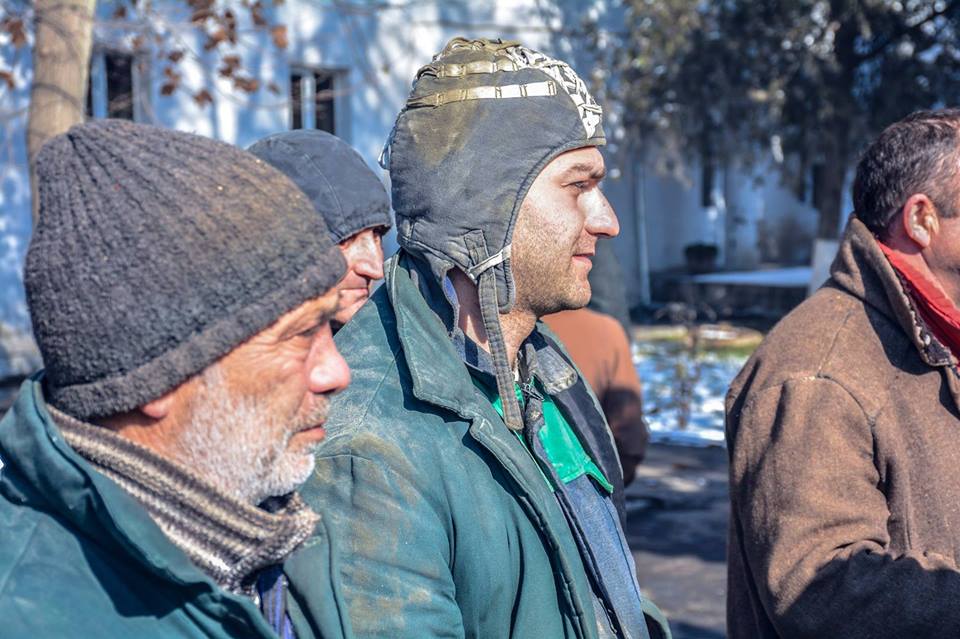
Feb 13, 2017
Some 350 workers at the Georgia chemical company Rustavi Azot recently were dismissed without notice or compensation and nearly 2,000 more threatened with firing unless they accept new, short-term contracts. The actions by the company, which produces mineral fertilizers, ammonia, sodium cyanide and nitric acid, generated protests in Rustavi and Tbilisi, garnered international support and prompted local media speculation about potentially questionable business dealings by the company’s former owner, Bank of Georgia.
The workers did not receive notice or access to union representation before being fired in January. Instead, they learned they had been dismissed when their passes failed to grant them access to the plant. Workers protesting their dismissals on February 2 suffered broken ribs and other injuries after they were violently removed from the company building by police.
Workers still employed at the plant say they were confronted with new contracts and threatened by their employer with firing if they refused to sign, and denied union representation and legal consultation. They say their future with the company is now uncertain.
Solidarity Center partner Georgian Trade Union Confederation (GTUC) is leading a legal challenge on behalf of dismissed workers, asserting that the firings violate Georgia’s labor code and the employer’s collective bargaining agreement with the Trade Union of Metallurgy, Mining and Chemical Industry Workers of Georgia (TUMMCIWG), a GTUC affiliate. With Solidarity Center assistance, the GTUC is preparing lawsuits against the company, demanding reinstatement or the compensation to which workers are entitled.
Workers from multiple unions, including representatives from IndustriAll affiliates in Armenia, Belarus and Kyrgyzstan joined members of TUMMCIWG and the GTUC for a global solidarity rally this week in Rustavi, presenting to fired workers letters of support from trade unions in Moldova, Russia and Ukraine.
Some Georgia media outlets are questioning how Rustavi Azot changed hands last September through a secretive auction shortly after receiving a $155 million loan from the European Bank for Reconstruction and Development (EBRD).
Rustavi Azot, located 14 miles south from Tbilisi, generated 84 percent of its sales last year from exports, including to some European Union countries.
